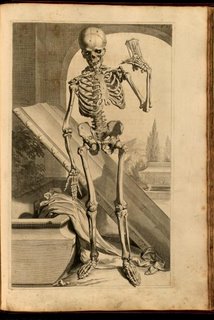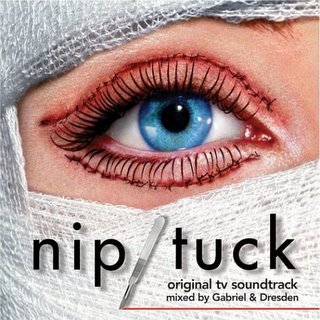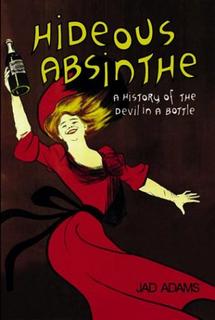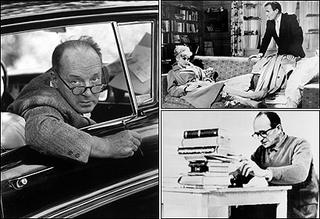WASHINGTON - Because every few years this country, in its infinite tolerance, insists on hearing yet another appeal of the Scopes monkey trial, I feel obliged to point out what would otherwise be superfluous - that the two greatest scientists in the history of our species were Isaac Newton and Albert Einstein, and they were both religious.
Newton's religiosity was traditional. He was a staunch believer in Christianity and member of the Church of England. Einstein's was a more diffuse belief in a deity who set the rules for everything that occurs in the universe.
Neither saw science as an enemy of religion. On the contrary. "He believed he was doing God's work," wrote James Gleick in his recent biography of Newton. Einstein saw his entire vocation - understanding the workings of the universe - as an attempt to understand the mind of God.
Not a crude and willful God who pushes and pulls and does things according to whim. Newton was trying to supplant the view that first believed the sun's motion around the earth was the work of Apollo and his chariot, and later believed it was a complicated system of cycles and epicycles, one tacked on upon the other every time some wobble in the orbit of a planet was found. Newton's God was not at all so crude. The laws of his universe were so simple, so elegant, so economical, and therefore so beautiful that they could only be divine.
Which brings us to Dover (Pa.), Pat Robertson, the Kansas State Board of Education and a fight over evolution that is so anachronistic and retrograde as to be a national embarrassment.
Dover distinguished itself this Election Day by throwing out all eight members of its school board who tried to impose "intelligent design" - today's tarted-up version of creationism - on the biology curriculum. Pat Robertson then called down the wrath of God upon the good people of Dover for voting "God out of your city." Meanwhile in Kansas, the school board did a reverse Dover, mandating the teaching of skepticism about evolution and forcing intelligent design into the statewide biology curriculum.
Let's be clear. "Intelligent design" may be interesting as theology, but as science it is a fraud. It is a self-enclosed, tautological "theory" whose only holding is that when there are gaps in some area of scientific knowledge - in this case, evolution - they are to be filled by God. It is a "theory" that admits that evolution and natural selection explain such things as the development of drug resistance in bacteria and other such evolutionary changes within species, but that every once in a while God steps into this world of constant and accumulating change and says, "I think I'll make me a lemur today." A "theory" that violates the most basic requirement of anything pretending to be science - that it be empirically disprovable. How does one empirically disprove the proposition that God was behind the lemur, or evolution - or behind the motion of the tides or the "strong force" that holds the atom together?
In order to justify the farce that intelligent design is science, Kansas had to corrupt the very definition of science, dropping the phrase " - natural explanations for what we observe in the world around us," thus unmistakably implying that the supernatural is an integral part of science. This is an insult both to religion and to science.
The school board thinks it is indicting evolution by branding it an "unguided process" with no "discernable direction or goal." This is as ridiculous as indicting Newtonian mechanics for positing an "unguided process" by which the Earth is pulled around the sun every year without discernible purpose. What is chemistry if not an "unguided process" of molecular interactions without "purpose"?
He may be, of course. But that discussion is the province of religion, not science. The relentless attempt to confuse the two by teaching warmed-over creationism as science can only bring ridicule to religion, gratuitously discrediting a great human endeavor and our deepest source of wisdom precisely about those questions that lie beyond the material.
How ridiculous to make evolution the enemy of God. What could be more elegant, more brilliant, more creative, indeed more divine than a planet with millions of life forms, distinct and yet interactive, all ultimately derived from accumulated variations in a single double-stranded molecule, pliable and fecund enough to give us mollusks and mice, Newton and Einstein? Even if it did give us the Kansas State Board of Education too.
Charles Krauthammer writes for the Washington Post Writers Group, 1150 Fifteenth St. N.W., Washington, D.C. 20071. His e-mail address is letters@charleskrauthammer.


















 You have to be always drunk. That's all there is to it—it's the only way. So as not to feel the horrible burden of time that breaks your back and bends you to the earth, you have to be continually drunk.
You have to be always drunk. That's all there is to it—it's the only way. So as not to feel the horrible burden of time that breaks your back and bends you to the earth, you have to be continually drunk.  Vladimir Nabokov (left) in September 1958. ''L'Affaire Lolita,'' as the French had christened it, was just beginning its long career. THE ELOQUENCE OF EVIL? James Mason as Humbert Humbert (top right) in Stanley Kubrick's 1962 film version of ''Lolita.'' Nazi war criminal Adolf Eichmann (bottom right), in confinement in Jerusalem in 1961. Eichmann's disgust with ''Lolita'' raises the unsettling question of how to read the novel.N THE SPRING OF 1940, on the last crossing of a French ocean liner that would be sunk by German U-boats on its return voyage, Vladimir Nabokov, his wife, and his young son arrived in New York. The family's first, precarious years in America brought many changes, but one element remained constant. Every summer, Nabokov and his wife would drive cross country to the Rocky Mountains, which offered the country's best butterfly hunting.
Vladimir Nabokov (left) in September 1958. ''L'Affaire Lolita,'' as the French had christened it, was just beginning its long career. THE ELOQUENCE OF EVIL? James Mason as Humbert Humbert (top right) in Stanley Kubrick's 1962 film version of ''Lolita.'' Nazi war criminal Adolf Eichmann (bottom right), in confinement in Jerusalem in 1961. Eichmann's disgust with ''Lolita'' raises the unsettling question of how to read the novel.N THE SPRING OF 1940, on the last crossing of a French ocean liner that would be sunk by German U-boats on its return voyage, Vladimir Nabokov, his wife, and his young son arrived in New York. The family's first, precarious years in America brought many changes, but one element remained constant. Every summer, Nabokov and his wife would drive cross country to the Rocky Mountains, which offered the country's best butterfly hunting.






